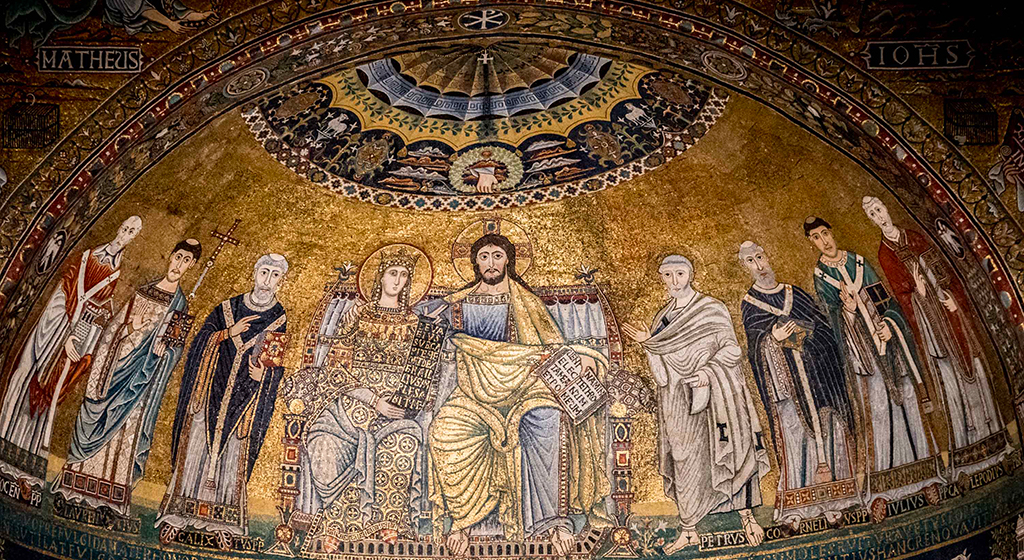Memory of the Church
Today the Byzantine Church venerates Saint Sabbas (†532), "the Archimandrite of all the hermits of Palestine."
Reading of the Word of God
Alleluia, alleluia, alleluia
I am the good shepherd,
my sheep listen to my voice,
and they become
one flock and one fold.
.
Alleluia, alleluia, alleluia
Isaiah 26,1-6
That day, this song will be sung in Judah: 'We have a fortress city, the walls and ramparts provide safety. Open the gates! Let the upright nation come in, the nation that keeps faith! This is the plan decreed: you will guarantee peace, the peace entrusted to you. Trust in Yahweh for ever, for Yahweh is a rock for ever. He has brought low the dwellers on the heights, the lofty citadel; he lays it low, brings it to the ground, flings it down in the dust. It will be trodden under foot, by the feet of the needy, the steps of the weak.'
Alleluia, alleluia, alleluia
I give you a new commandment,
that you love one another.
Alleluia, alleluia, alleluia
This passage is a hymn of praise and thanksgiving. There are two reasons for this joy and gratitude: the destruction of the "lofty city," Babylon, a symbol of the pride and arrogance of the powerful who crush the weak and the poor, and the construction of a "strong city," Jerusalem, which welcomes the people who have been faithful to the Lord. The city built by God has solid, impregnable walls. This is why believers are urged to trust in God alone but we are instinctively pushed to trust only in ourselves, in our security, thinking that in doing so we can defend our existence! This is how barriers and walls are built in order to reject the poor and the weal who seek future and peace for their lives. The prophet invites us to keep the gates of our cities - and of our hearts - always open. The insistent call of Pope Francis to go out towards all is a response to this biblical perspective of gates that are always open, both to let believers out towards all and to let those who are in need enter. The city becomes the place where the people of the humble and the people of the poor live together, two peoples united that should never separate. Believers and the poor live in this city together, a city that certainly comes from heaven, but which must begin now on earth. Any separation inside of it has disastrous consequences. The prophet writes that the Lord, "has brought low the inhabitants of the height; the lofty city he lays low. He lays it low to the ground, casts it to the dust." Distance from the poor is distance from God. The image of a city brought down and cast in the dust is harsh but true and it is painfully actual in many parts of the world. It is essential for us to welcome God's revolution. As it happens with Jesus. Mary from Nazareth sings of the reversal of the world's logic: "He has shown strength with his arm; he has scattered the proud in the thoughts of their hearts. He has brought down the powerful from their thrones, and lifted up the lowly" (Lk 1:51-52).
